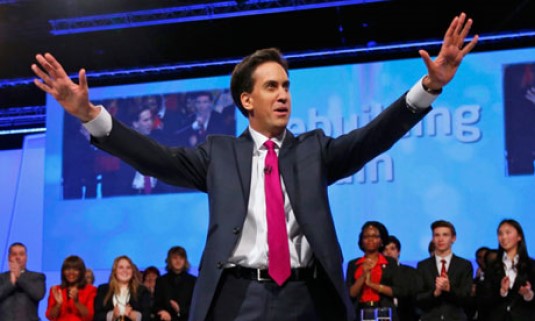
He does make some useful points. Conference really is for the most committed of political bods. Given the huge prices charged for visitors' passes (delegates are funded by their constituency parties/associations), you might say party conference is the province of them with more money than sense. You can't disagree with him about the huge travel and accommodation costs. The Tories were right to have their annual gathering in a central(ish) location this year. Labour's decision to hold conference on the south coast however wasn't the most sensible for folk who already have to travel some distance for a middle (with a small m) England venue. What about MPs getting a further three weeks away from Parliament as conference season rolls around - can that be justified?
And then there's the meat of Tom Harris's argument.
He says party conferences are an anachronism, a hangover from an age where delegates drank themselves silly on earnest debates and the free red liberally supplied by the Co-Op. As policy-making powers have progressively drained away from conference and become bound up in Byzantine consultation exercises and wonky-sounding documents that occasionally land on secretaries' door mats, conference just ceased to matter. And this isn't just a Labour thing. At least there was once an option to formally set policy for the people's party. Such things have always been the prerogative of the party aristocracy in the Conservatives. Hence, Tom argues conferences are now occasions for parties to tap up donors and create a bit of media excitement around latest statements of intent. Unless you're the LibDems.
But despite that, I think Tom is wrong. As it happens, I think conference should be the sovereign policy-making body. While the internal arrangements for each and every political party are a matter for themselves and its members, it is only natural that the volunteering of a regular cash payment and active campaigning for a party is "rewarded" by a chance to help shape its policies. But even though Tory and Labour conferences fall well short on the 'rights' side, the once-yearly jamboree is still important.
Yes, it is a showcase for parties. And there is an argument that they do improve the otherwise stunted democratic political culture we possess. That one week Labour talks about its plans for providing work for the long-term unemployed, while the Tories today think compelling them to attend 39 hour weekly job hunts down the dole office certainly helps clarify who has a sensible policy on the issue.
More importantly however is what conference means for party activists. It offers an opportunity to mix with activists outside the stifling confines of one's local or sub-regional party organisation. There is a chance of meeting a leading politician or having drunken conversations with celebrities. If you want to spurn the company of the Blairites or the wets that infest your local CLP or association, fringes offer the chance to hang out with your political kin. Conference for all the mainstream parties is the annual moment where the closed universe of the Westminster (or, if SNP, Holyrood) bubble opens up and briefly admits thousands of 'ordinary' members. It shows members they are part of a wider political endeavour, of a collective movement that is roughly united around common objectives. The chance to participate in debates with political notables in the room, the exchange of banter with ex-ministers while nipping to the loo, it encourages one to believe you are a component of something larger than yourself - that you are a bit player in the drama that determines the ship of state's bearings. It's powerful, inspiring, intoxicating. Most come away refreshed and eager to sock it to the enemy. In this sense it is an annual booster for the armies of campaigners, leafleters and canvassers. As such it is indispensable to mainstream politics.
As Tom admits, he enjoys conference. But he figured that he'd best "spend this week with my family rather than with colleagues, many of whom I see plenty of when Parliament’s sitting anyway." As the member for Glasgow South, he is someone who is a participant/player in the Westminster game anyway. Conference is more a less an extension of the work Tom does, except scenery changes year on year. And because it is his 'everyday' he might not fully appreciate the galvanising power of conference for those who do not and will never sit in the House.
3 comments:
It seems only yesterday that we sent this years female delegate to conference.
No finer choice.
At the next eager GMC meeting one of our fellow (drunk) long serving members began to question the conference delegate on her contribution that week.
The drunk: "Name three policies you voted in favour of and name three policies you voted against".
(nb. she is there to represent the CLP as we all know.
The (now severely distressed)delegate:
"I can't remember".
Was said delegate prepped for the role beforehand?
The said delegate holds most responsibility for destroying Stoke Labour and weakening it in the face of the current electorate.
Generally clueless about how the Labour Party works.
I did come to her rescue by saying that the questioner was being unfair by putting her on the spot.
He wasn't, he was right and to prove how right he was, I reckon you could have answered the question easily.
The questioner was out for revenge and he got it.
People targeted whom had not attended any meetings anywhere for three years?
A huge clue there.
I blame the WM totally for the current predicament and only a resignation will cure it.
I do believe however, that your general blog of this issue is more of how you would like it to be rather than how it actually is.
Post a Comment